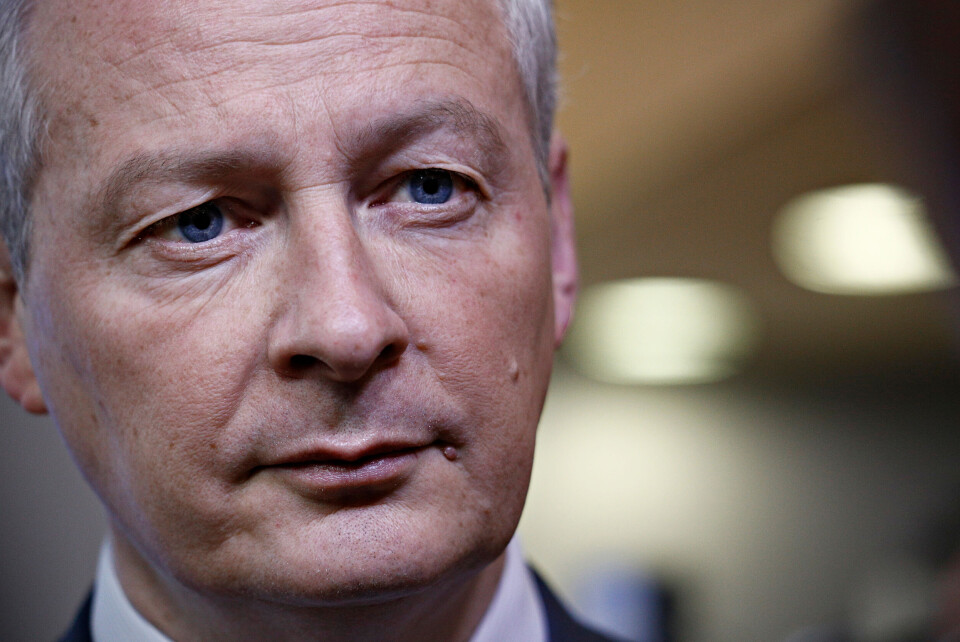-
Many parcel collection points in France are overwhelmed as Christmas approaches
Heavy customer traffic leaves some struggling to cope
-
Warnings issued over connecting to public WiFi networks in France
Lack of encryption and risk of connecting to ‘fake networks’ leave users at risk of hacking attempts
-
Provence’s santon makers seek geographical protection for historic craft
The small, hand-painted clay figurines are at the heart of traditional French Christmas nativity scenes
Inflation: France will not see ‘double figure scenario’, says minister
Bruno Le Maire, however, warns that the situation is not set to improve before 2023

The French inflation rate is not expected to improve before next year, but will not reach double figures as it has in the UK, the finance minister has said.
Bruno Le Maire told France 5: “Currently, we do not have a scenario on the table involving an inflation rate of double figures in France.”
In July, the French inflation rate hit 6.1% over a year, data from the national statistics institute Insee shows. Meanwhile, in the UK, it reached 10.1%, and is expected to get to more than 18% in 2023, according to investment bank Citi.
France’s lower inflation rate is largely down to the government’s decision in autumn 2021 to freeze regulated gas tariffs and cap regulated electricity prices at a rise of 4%.
If gas prices had not been frozen by this ‘bouclier tarifaire’ (tariff shield), they would be 105% higher now than they were in October 2021, energy regulator the Commission de régulation de l’énergie (CRE) has said.
Mr Le Maire added that: “in the weeks and months to come, until the end of 2022, we will continue to see very high prices.
“Then at the beginning of 2023, at least, this is what we predict, in the first quarter we should begin to see inflation and prices decline. It will happen gradually,” he said.
In an interview given to Sud-Ouest over the weekend, the finance minister has also said that France is currently at its “inflation peak” and that “it is now that we must help French people the most”, with support targeted at “those who need it most” from 2023, when the energy price caps will come to an end.
Mr Le Maire said that: “It is the Russian gas issue which will influence European growth in the coming months.
“If [Russia] decides to cut off gas supply to the EU and the Euro Zone, we will evaluate the impact on growth, which for France alone will come to half a percentage point of GDP, and doubtless will come to more for other economies which are more dependent on Russian gas.”
How are inflation rates in other European economies looking?
The Citi investment bank has predicted that the UK’s inflation rate will get to 18% next year, its highest in 50 years, while the Resolution Foundation has gone further and predicted 18.3%.
It is already at 10.1%, five times more than the Bank of England target.
These predictions come ahead of an announcement tomorrow (August 26) on the maximum amount energy suppliers can charge households from October.
Energy regulator Ofgem is expected to announce an energy price cap of £3,553 per year in October, marking a rise of 80%.
Germany’s inflation rate reached 7.5% over a year in July, which marked a slight decrease from June (7.6%) and May (7.9%), according to the German Federal Statistical Office. Inflation is expected to average 7.9% over the whole of 2022, and above 5% in 2023.
Spain’s inflation rate was 10.8% over a year in July 2022, its highest since 1984. The average rate for the year is expected to settle around 7.8%, higher than the 6.1% predicted in April.
Related articles
Macron: ‘France is at the end of its age of abundance’
How the French government fuel discount will change from September 1
Cost of living: French supermarket freezes price of 100 products
























